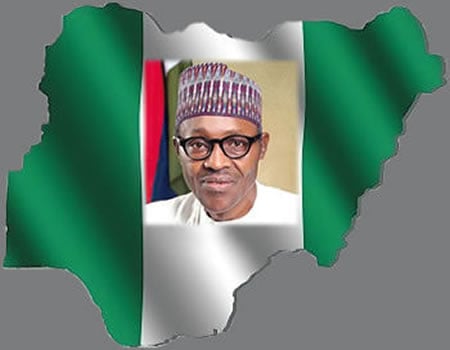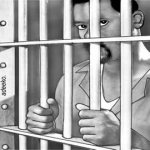The OAU meeting was a prelude to the eventual movement of the seat of the Federal government finally from Lagos to Abuja on December 12 1991 by General Babangida. The last time Nigeria hosted the world was in December 2003 when the 17th Commonwealth of Heads of Government meeting held in Abuja with fifty world leaders including the British monarch, Queen Elizabeth in attendance. The task force for the meeting was coordinated by the deputy Chief of Staff to the President, Ambassador Aderemi Olagoke Esan from Ilesa. He was assisted by other top government officials including Chief Bisi Oguniyi from Iree in Osun State. It was during the same meeting that President Olusegun Obasanjo was elected chairman of the Commonwealth. Queen Elizabeth visited Abuja with her husband, Prince Phillip. It was the second time she visited Nigeria, the first being in 1956. The Commonwealth meeting in Abuja was the largest gathering in Africa of foreign dignitaries.
Before the commencement of CHOGM 2003, the Queen accompanied by the then first lady, Chief (Mrs.) Stella Obasanjo and President Olusegun Obasanjo, on Wednesday evening, December 3, were on hand at the Nnamdi Azikiwe International Airport to receive the Queen and her husband Prince Phillip. At a state banquet in the Queen’s honour at the new banquet hall of the state house, the president called the visit, ‘very significant’ and hoped that the traditionally cordial ties between Nigeria and Britain ‘would be further strengthened…for the mutual benefit of our people’. President Obasanjo said that his administration had pursued ‘people-oriented policies’, intended to improve the living condition of the Nigerian people.
Her majesty expressed happiness of Nigeria’s return to democratic rule in 1999 and the Obasanjo administration’s ‘much-needed political, economic and judicial reform’ and fight against corruption, adding that ‘without prosperity and democracy in Nigeria, there will be no lasting prosperity in Africa’.
At the banquet, the Queen met and shook hands with state officials, former Nigerian leaders, traditional rulers, civil society leaders, businessmen and religious leaders The Queen also met with Hajia Hashila and Mrs Folashade Randle who, as little girls in 1956, presented flowers to her.
The following day, the Queen and her husband travelled to Lagos to meet sponsors of the Community Action Through Sports (CASTS) and attend an exhibition the National Conservation Foundation (NCF).
By all accounts, Nigeria put together a superlative opening ceremony for CHOGM 2003. Heads of governments and delegates were thrilled by traditional talking drums, dances, music and masquerades.
A few weeks later President Obasanjo was elected Chairman of the African Union in Abuja. Such meetings are very rare to come by in Nigeria of today.
There was a time when our foreign Ministers were like superstars in the global stage.
I have in mind Chief Jaja Anucha Wachukwu (1918-1996), Dr. Okoi Arikpo (1916-1995), Alhaji Nuhu Bamali (1917-2002), Chief Emeka Anyanokwu (84), Major General Henry Edmund Olufemi Adefowope (1926-2012), Dr Ibrahim Agboola Gambari (72), Professor Akinwande Bolaji Akinyemi (75), Major General Joseph Nanven Garba(1943-2002), Major General Ike Omar Sanda Nwachukwu (77), Chief Matthew Tawo Mbu (1929-2012) and Ambassador Oluyemi Adeniji (1934-2017).
Nigeria’s finest moment was on January 11, 1976 at Addis Ababa in Ethiopia at an extra ordinary conference on liberation struggles in Africa. General Murtala Mohammed spoke that afternoon and the world listened. He forced the world to take a stand on Angola. Like a volcanic eruption he said, “Africa has come of age”. With a roaring voice, General Murtala declared, “Another recent development had further heightened the danger of conscious sabotage of our independence by foreign powers. The monetary crisis has highlighted the vulnerability of the economies of the developed countries and the extent to which their prosperity had been built on our poverty. The lower the prices we were paid for our natural resources, the higher the prices we have had to pay for the manufactures made out the same natural resources purchased from us. The result of the world economic crisis has forced the developed countries to face the realities on the interdependence of the world economy, rather than the erstwhile presumption by them that they sustained world economy by themselves…
For too long has it been presumed that African needs outside “experts” to tell him who are his friends and who are his enemies. The time has come when we should make it clear that we can decide for ourselves; that we know our own interests and how to protects those interests; that we are capable of resolving African problems without presumptuous lessons in ideological dangers, which more often than not have no relevance for us, not for the problem at hand”.
A few minutes after the speech, General Murtala Mohammed flew back to Lagos and the OAU immediately recognised MPLA of Dr. Augustino Neto as the only government for Angola. That was long time ago. Suddenly, we have taken the back seat in the world stage. Sadly, the world is moving without us.
Teniola, a former director at the Presidency, lives in Lagos.






